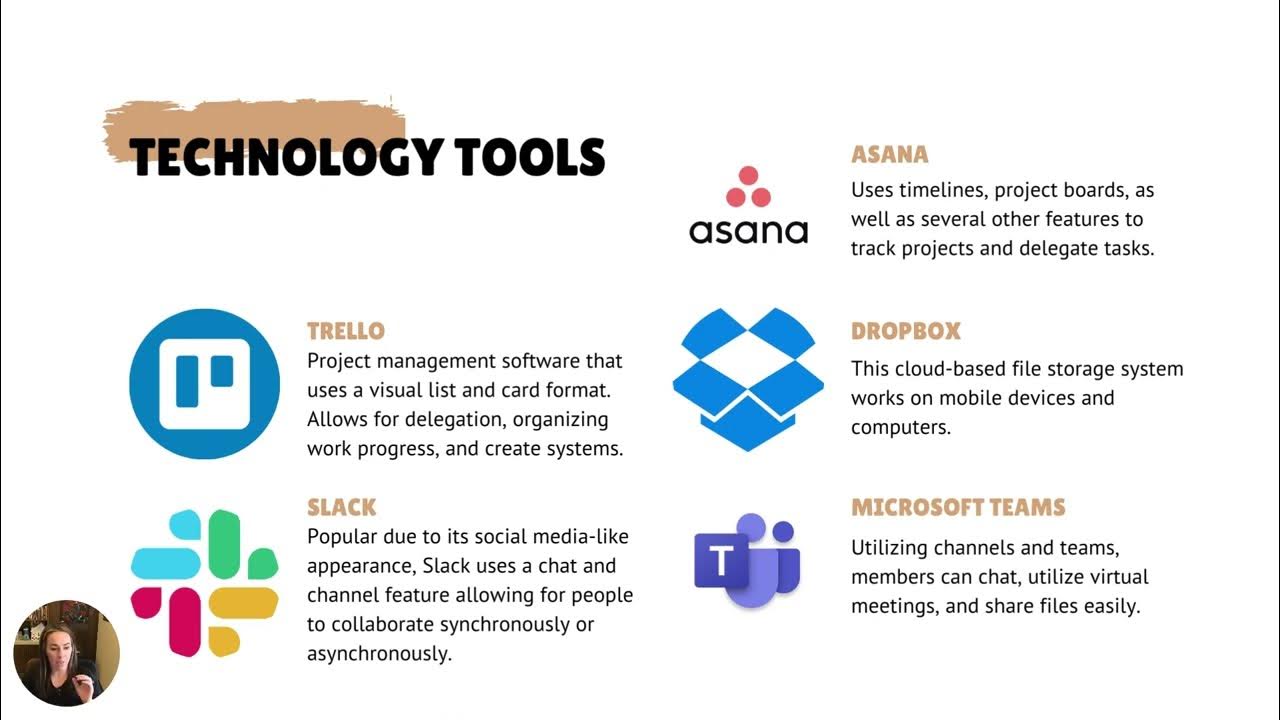How Working Remotely Will Change More Than Work
Summary
TLDRThis video explores the changing nature of work due to the COVID-19 pandemic, highlighting the shift from office-based jobs to remote work. It discusses the benefits and challenges of this transition, such as improved productivity, flexibility, and better work-life balance, while also addressing the downsides like difficulty separating personal and professional lives. The video also touches on broader societal impacts, including changes to urban life, commuting, and the possibility of hybrid work models, as well as the environmental and lifestyle benefits of reduced commuting.
Takeaways
- 🏡 The COVID-19 pandemic has led to a significant shift towards remote work, with many employees working from home, which has resulted in a more content, motivated, and productive workforce.
- 🚗 Commuting, which is often considered the worst part of the day for many professionals, has been identified as a major cause of stress and has negative impacts on health and well-being.
- 🔍 Studies have shown that long commutes can lead to a decrease in exercise, less time spent at home, and even an increased risk of separation for couples.
- 🌐 The pandemic has highlighted the benefits of flexible working, with remote work proving to be a viable alternative to traditional office environments.
- 🏢 Companies like SK Telecom have successfully implemented remote work policies, allowing employees to work from home or local offices, which has increased work motivation and family time.
- 🤔 While remote work has its advantages, some research suggests that commuting can provide a necessary separation between personal and professional life, which is now being reevaluated.
- 📈 Productivity can improve with flexible working arrangements, challenging the myth that remote work leads to decreased efficiency.
- 🏙️ The shift to remote work may lead to changes in urban planning, with potential for more distributed living and working spaces, and a reconfiguration of city infrastructure.
- 🌿 The potential for a 'polycentric city' model is discussed, where daily necessities are within a 15-minute reach, reducing transit times and emissions, and promoting more sustainable and equitable access to services.
- 🔗 Companies may need to adapt to support workers in the new normal, possibly offering sponsored co-working spaces closer to where employees live or allowing for a hybrid work model.
Q & A
How has the Coronavirus pandemic impacted the traditional workday?
-The Coronavirus pandemic has forced a sudden shift to remote work, with many people working from home, leading to a more content, motivated, and productive workforce.
What are the general global sentiments about commuting to work?
-Globally, two fifths of professionals consider the commute to be the worst part of their day, with commuting being a major cause of stress impacting physiological health and wellbeing.
What are the specific negative effects of long commutes on personal life?
-Long commutes can lead to less time at home, less exercise, and less healthy food choices. Additionally, a study found that commuting long distances increases the risk of separation in relationships by 40%.
How has the shift to remote work affected employees like Park Jong Han?
-For Park Jong Han, working from home or a local office reduced his commute time from three hours to 15 minutes, increasing his time with family and motivation to work harder.
What challenges did employees face initially when transitioning to remote work?
-In the beginning, employees like Park Jong Han felt exhausted due to the lack of a clear boundary between work and rest, as work could intrude at any time and place.
How does the script suggest that organizations can benefit from flexible working?
-Organizations can benefit from increased productivity, longer workdays, and better management of processes when they effectively implement and manage flexible working arrangements.
What are the potential changes to urban planning and city life due to the shift in work patterns?
-The script suggests that the changes in work patterns could lead to a more distributed city model, with a focus on local living and working, potentially reducing transit times and GHG emissions.
How might the concept of a 'polycentric city' or a '15-minute city' affect urban living?
-A 'polycentric city' or '15-minute city' model could make cities more livable by reducing commute times, increasing access to services, and promoting a more sustainable and equitable urban environment.
What are the potential benefits of companies offering sponsored co-working spaces closer to employees' homes?
-Offering co-working spaces closer to employees' homes can decrease commute times, increase work satisfaction, and provide a more balanced work-life integration.
How has the pandemic influenced the expectations of workers regarding their work-from-home arrangements?
-Over 90% of people in a recent survey indicated they would not return to the office full time after COVID, showing a strong preference for continued remote or flexible work options.
What are the potential long-term effects of the pandemic on the nature of work and city infrastructure?
-The pandemic may lead to a more widespread adoption of remote work, influencing city infrastructure to become more pedestrian and cyclist-friendly, and potentially changing the way we use and distribute services within cities.
Outlines

This section is available to paid users only. Please upgrade to access this part.
Upgrade NowMindmap

This section is available to paid users only. Please upgrade to access this part.
Upgrade NowKeywords

This section is available to paid users only. Please upgrade to access this part.
Upgrade NowHighlights

This section is available to paid users only. Please upgrade to access this part.
Upgrade NowTranscripts

This section is available to paid users only. Please upgrade to access this part.
Upgrade NowBrowse More Related Video

Philippines' BPO Industry Bouncing Back from COVID-19

Best Remote Jobs Tier List (Remote Careers RANKED)

Work culture expert imagines your post-pandemic professional life

the death of 24 hour america — why nothing stays open late

How a rise in remote employment may impact post-pandemic work life

Virtual Meetings and Remote Work
5.0 / 5 (0 votes)